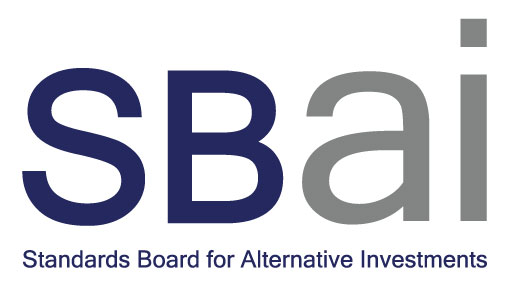Consultations
In line with our mandate, we respond to changes in industry practices and investor expectations by periodically consulting publicly on improvements to the Standards. Amendments that resulted from past consultations have been incorporated into the Standards.
Latest Consultations
Review of existing Standards and proposal for the addition of new Standards specific to Private Market Assets
The key objective of CP5.1 is to address the needs of closed-ended vehicles as part of the first phase of a comprehensive Standards review process that will take place throughout 2025.
The SBAI invites comments on this Consultation Paper which should be submitted by 30 June 2025 electronically (Word, pdf-document). Please click on the document below to see the full details.
Past Consultations
In line with our mandate, we respond to changes in industry practices and investor expectations by periodically consulting publicly on improvements to the Standards. Amendments that resulted from past consultations have been incorporated into the Standards.
Consultation 1: Redemptions
In 2008 and 2009, alternative investment funds faced significant investor redemptions. This coincided with a decrease in market values, reduced availability of credit or leverage, and reduced liquidity in certain market segments. This put significant strain on the liquidity position of certain funds resulting in some forced selling into depressed markets driving valuations even lower.
The Consultation Paper CP1 assessed potential systemic risk concerns and the negative externalities that can arise in these situations. Standards were proposed, along with guidance, to address these issues including improved disclosure on the handling of redemptions to ensure fair treatment of investors.
Consultation 2: Administration and Safekeeping
The Madoff scandal in 2008 highlighted the importance of independent fund administration for functions, such as Net Asset Value calculation, cash management, and transfer agency.
The Consultation Paper CP2 proposed Standards and guidance for stronger arrangements for the appointment of independent third party fund administrators and improved investor disclosure.
Consultation 3: Globalisation of the Standards
The Consultation Paper CP3 proposed Standards designed to ensure international relevance and strengthen the Standards in the light of a number of issues that became apparent during the financial crisis.
This proposed standards included a process for where there is no independent fund governing body in relation to handling changes to investment policy or commercial terms and disclosure of material developments in the strategy or business, litigation against the manager, and valuation.
Consultation 4: Managing Conflicts of interest
Conflicts of interest can arise between managers and investors and between different investors. These conflicts are usually caused by information asymmetries and/or a lack of alignment of interests. Consultation Paper CP4 focused specifically on conflicts of interest between parallel funds (including employee or partner only funds). The new Standards seek to strengthen managers’ arrangements to mitigate conflicts of interest and enhance disclosure to investors.
Investor disclosures added include:
- The existence of funds or accounts managed by the firm using the same or a similar strategy and any material adverse effect on the investors in the fund
- Manager co-investment in the fund
- Employee or partner only funds
- Trade allocation policy
Consultation 1: Redemptions
In 2008 and 2009, alternative investment funds faced significant investor redemptions. This coincided with a decrease in market values, reduced availability of credit or leverage, and reduced liquidity in certain market segments. This put significant strain on the liquidity position of certain funds resulting in some forced selling into depressed markets driving valuations even lower.
The Consultation Paper CP1 assessed potential systemic risk concerns and the negative externalities that can arise in these situations. Standards were proposed, along with guidance, to address these issues including improved disclosure on the handling of redemptions to ensure fair treatment of investors.
Consultation 2: Administration and Safekeeping
The Madoff scandal in 2008 highlighted the importance of independent fund administration for functions, such as Net Asset Value calculation, cash management, and transfer agency.
The Consultation Paper CP2 proposed Standards and guidance for stronger arrangements for the appointment of independent third party fund administrators and improved investor disclosure.
Consultation 3: Globalisation of the Standards
The Consultation Paper CP3 proposed Standards designed to ensure international relevance and strengthen the Standards in the light of a number of issues that became apparent during the financial crisis.
This proposed standards included a process for where there is no independent fund governing body in relation to handling changes to investment policy or commercial terms and disclosure of material developments in the strategy or business, litigation against the manager, and valuation.
Consultation 4: Managing Conflicts of interest
Conflicts of interest can arise between managers and investors and between different investors. These conflicts are usually caused by information asymmetries and/or a lack of alignment of interests. Consultation Paper CP4 focused specifically on conflicts of interest between parallel funds (including employee or partner only funds). The new Standards seek to strengthen managers’ arrangements to mitigate conflicts of interest and enhance disclosure to investors.
Investor disclosures added include:
- The existence of funds or accounts managed by the firm using the same or a similar strategy and any material adverse effect on the investors in the fund
- Manager co-investment in the fund
- Employee or partner only funds
- Trade allocation policy


